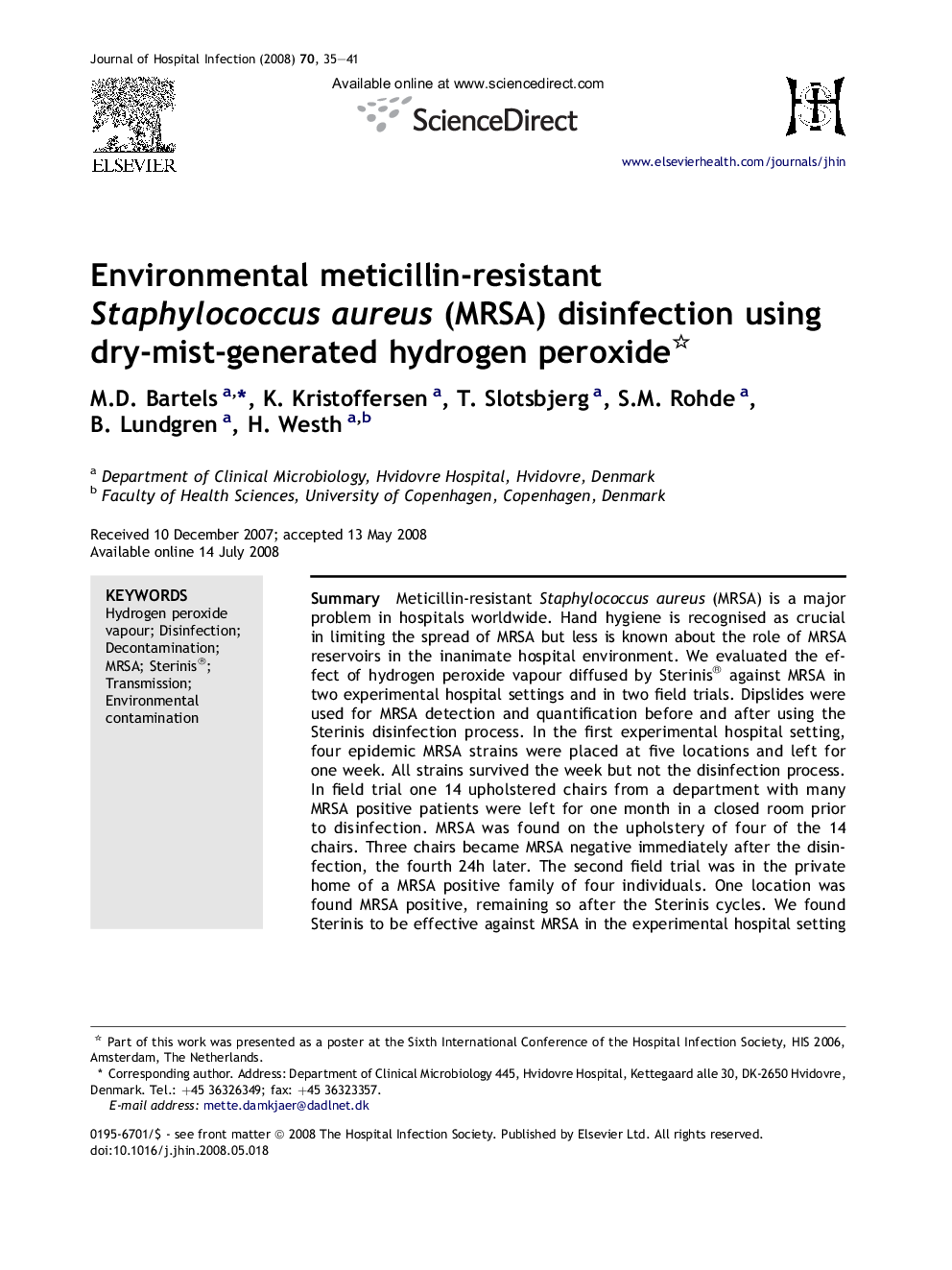| Article ID | Journal | Published Year | Pages | File Type |
|---|---|---|---|---|
| 3373257 | Journal of Hospital Infection | 2008 | 7 Pages |
SummaryMeticillin-resistant Staphylococcus aureus (MRSA) is a major problem in hospitals worldwide. Hand hygiene is recognised as crucial in limiting the spread of MRSA but less is known about the role of MRSA reservoirs in the inanimate hospital environment. We evaluated the effect of hydrogen peroxide vapour diffused by Sterinis® against MRSA in two experimental hospital settings and in two field trials. Dipslides were used for MRSA detection and quantification before and after using the Sterinis disinfection process. In the first experimental hospital setting, four epidemic MRSA strains were placed at five locations and left for one week. All strains survived the week but not the disinfection process. In field trial one 14 upholstered chairs from a department with many MRSA positive patients were left for one month in a closed room prior to disinfection. MRSA was found on the upholstery of four of the 14 chairs. Three chairs became MRSA negative immediately after the disinfection, the fourth 24h later. The second field trial was in the private home of a MRSA positive family of four individuals. One location was found MRSA positive, remaining so after the Sterinis cycles. We found Sterinis to be effective against MRSA in the experimental hospital setting and upholstered chairs, but not in the private home of heavily colonised MRSA patients.
